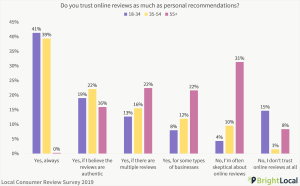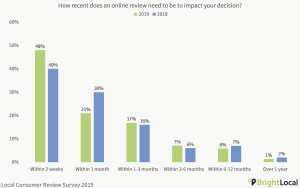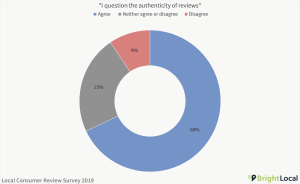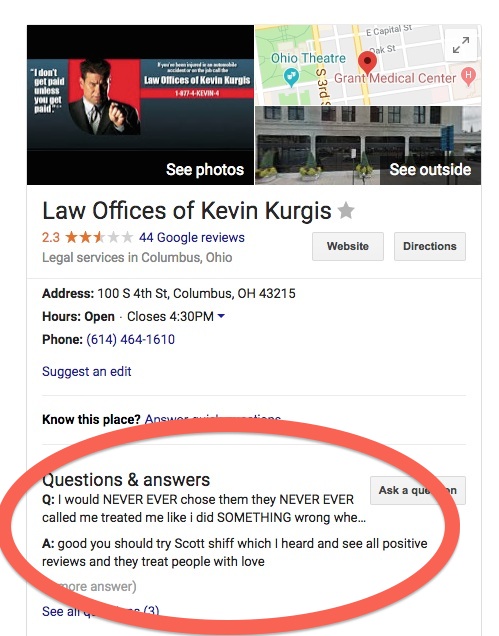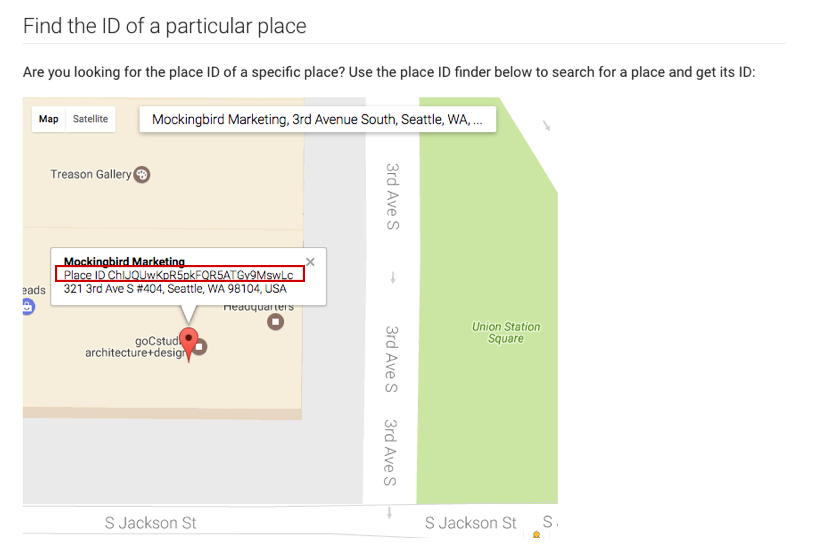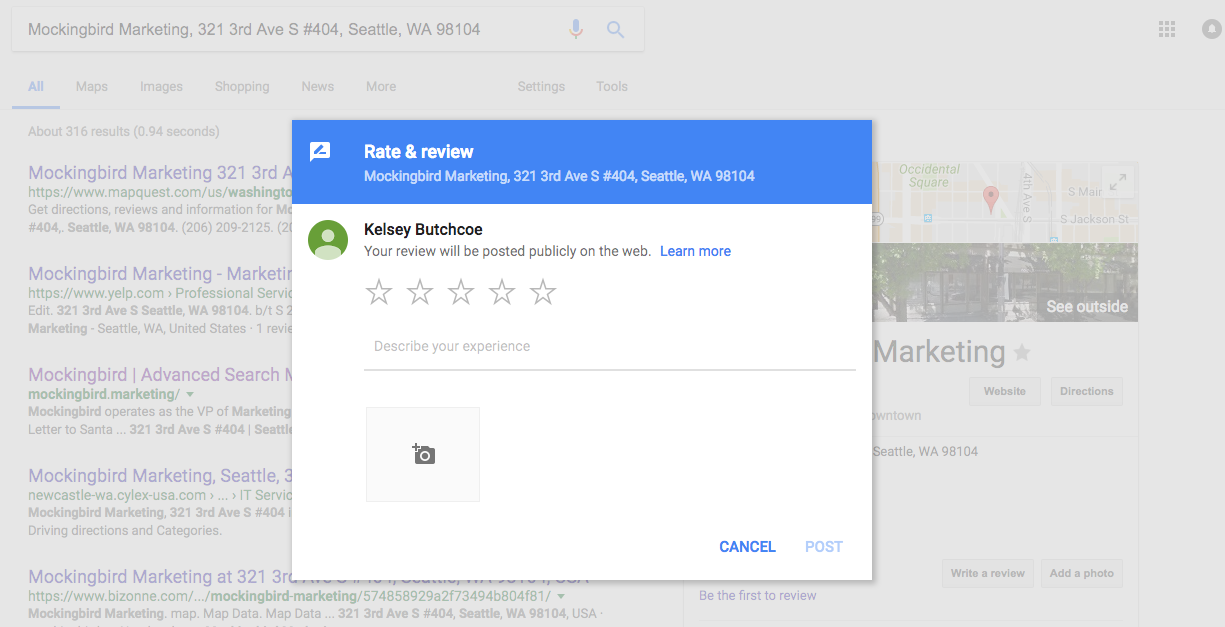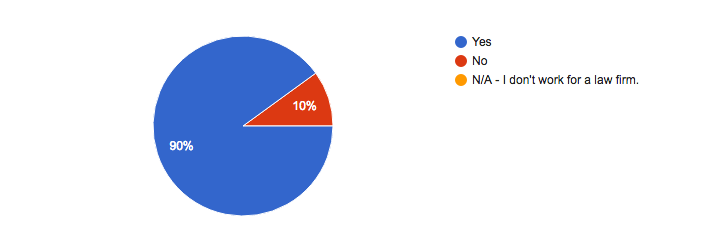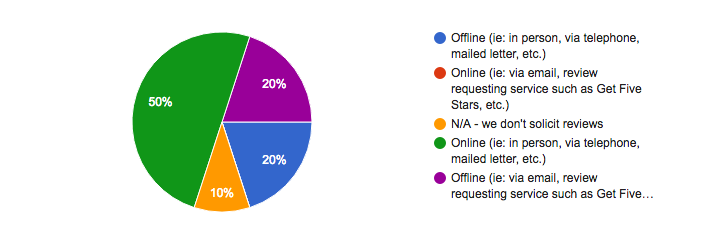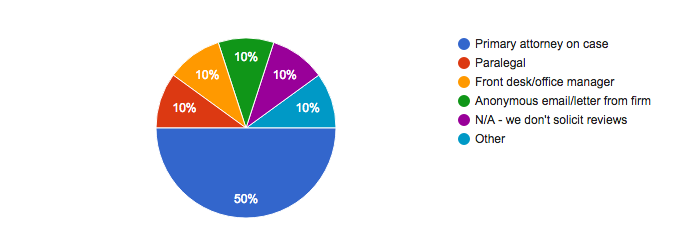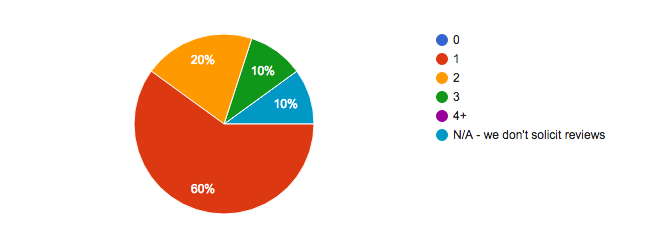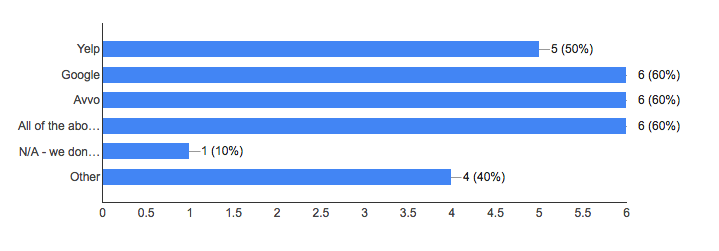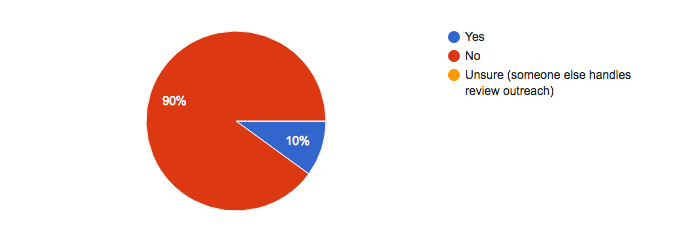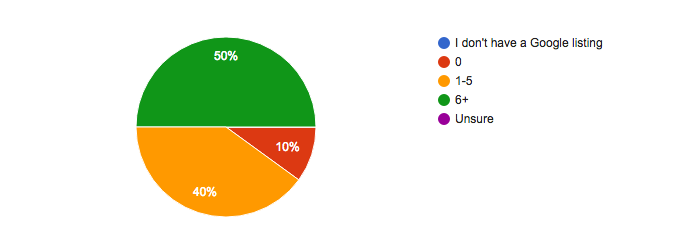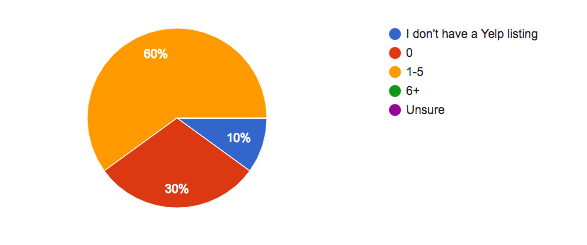Reputation management is yet another candidate in a long list of considerations you need to take into account when managing your online presence. In addition to proactively keeping your citations correct, building links, posting fresh content, structuring your site, and on and on, it can be tiring to know there’s one more thing that threatens to undermine your hard work and past successes. But anyone who tells you marketing is easy is a liar. There’s a reason this is our job.
What is reputation management? Why is it important?
The concept of reputation management is as simple as it sounds. If you want to be found (and subsequently hired), you need to put your information out on the internet. Moz’s 2014 Local Search Ranking Factor survey listed review signals as having 10% of total influence on search rankings. In addition, online reviews are trusted more than ads in almost every medium, and 35% of clients say they use online reviews to research new attorneys (thanks to the legal technology team at Software Advice for going out of their way to provide the raw info from that study). Having profile pages on sites like Avvo, Yelp, Google+, etc., makes you more likely to be found when someone searches for your practice. But getting clients isn’t just about whether your online presence is big or small, it’s also about whether that presence is good or bad. It doesn’t matter if you’re the top of the local pack for “personal injury lawyer New York” – if you show a 1-star average from 10 reviews, people will skip over you and go to the next attorney in line.
Managing your reputation means getting high-quality reviews from clients across multiple platforms, making sure those ratings are glowing and natural (no spam!), and dealing with bad reviews as they occur. It also means ranking well for search results directly related to your business, so that your results stand above any bad PR pieces that show up in the SERPs. But that’s a lot of moving pieces, so this post is just going to focus on one of the most obvious parts: getting good reviews. Let’s look into what you can do to have a great online reputation.
Getting clients to review you
The most important step towards getting good reviews is providing excellent service. You will find it very hard to get praise if you don’t deserve it. But once you’ve jumped over that minor hurdle, the next the best catalyst for reviews is asking. If you don’t ask for reviews, the only people who will give you any are the ones who seek out opportunities to do so. This usually lends to you looking worse online than in real life because angry clients are far more likely to go out of their way to review than happy ones.
At Mockingbird, we find that the best way to ask for reviews is in person after the case is over, then letting clients fill out the review in their own time afterwards. Strike up a conversation when the client comes by to fill out paperwork or make a payment, and tell them how much a review means to your business. Getting a verbal agreement from your client is one of the most effective means of guaranteeing they will review you afterwards. Look them in the eye, and gain their approval with a handshake. After that meeting, make the process is easy as possible by following up with an email linking them to your relevant profile(s) – except for Yelp, more on that in a bit. Another benefit of asking for reviews individually is that you can pick and choose who you want to represent you online. If you won a case but you don’t think the client will be receptive, consider not reaching out for a review.
Some people just don’t have the time to watch all their review sites and check in with each individual client, so they turn to automated review management tools like GetFiveStars or other automatic review solicitors. The usual trick with these is to send an initial email asking for feedback. If the reviewer gives a low score, they are thanked for their opinion and nothing else is done. If the review gives a high score, they are instead prompted to voice their opinions on one of several sites. We’ve tried this before, but our conversion rates were almost non-existent. The major problem is that this tactic is used for business with large client volumes, like restaurants or hair salons. Law firms and attorneys don’t deal with nearly as many clients, so you end up with a pretty bad return on investment. If you’re still interested in watching for reviews, consider a tracking software like ReviewTrackers so you don’t have to constantly visit your Justia and Avvo profiles.
Optimizing your impact
The strength of reviews is dependent on a lot of factors beyond your average ranking. Moz’s 2014 Local Search Ranking Factors survey emphasizes the following:
- Quantity of reviews
- Authority of sites hosting those reviews
- Diversity of sites hosting those reviews
- Freshness of reviews, and the rate those reviews were added
- Whether your rating shows up next to your search result (need 5 or more Google+ reviews)
The first on that list is quantity, which has become more important over the past year. Only about 8% of potential customers consider a business trustworthy if there is 1 review. For 85% of potential clients to consider you trustworthy, it’s good to have at least 10 reviews. Now these should be quality reviews so you can’t expect this to be done in a few days or even a few months. Like everything in SEO, good reputation management takes time.
In addition, you should be aware of what sites your reviews show up on, because there are a lot of options. A surprisingly large amount of users go through Yelp, along with Super Lawyers, Martindale-Hubbell, and Avvo. You can get reviews on Google+, Avvo, Justia, Yelp, and other directories, but ask your clients where they found your business so you what to focus on.
Yelp is a unique beast in that they don’t want you to ask your clients for reviews, something we’ve discussed in one of our LMQ videos. However, Yelp’s suggested ways to “remind customers”, such as profile links in your e-mail signature or stickers on your business door, aren’t effective for attorneys (and can be very tacky). We firmly believe that you should still proactively ask your clients for reviews, but avoid invoking Yelp’s ire by not explicitly stating where to go. A softer approach is more appropriate: “We really appreciate reviews because it helps our web presence, several places you can go are: [your top 3 targeted directories]”. In a follow-up email, don’t send them a direct link to your Yelp page, but ask them to search for your name.
Important Note: Even though you won’t be regarded as trustworthy if you have no reviews, potential clients will find you even less trustworthy if you have mostly bad reviews. Do not ask for a review unless you’re confident it will be a positive one.
The evils of astroturfing
It’s common to want an easy way out of this problem. Despite your best efforts, clients may not be likely to review you and not every review will be a raving 5 stars. At these times it may be tempting to look for another way to get your ratings up. But fight the urge. In addition to be less than fair to potential clients, it’s also dangerous for you.
Yelp is big on keeping reviews legitimate. They’ve sued attorneys for faking reviews before (we blogged about that incident), and they go over reviews to make sure nothing looks spammy or forced. Avvo will investigate reviews by hand multiple times, even to the point of asking reviewers to provide evidence that they worked with given attorneys. Remember that these sites make their livelihood off of consumers’ trust, so they are just as willing to crack down on scummy review practices as potential clients are. Even state governments have taken action against fake reviewing companies.
There are other tactics out there from attorneys and firms trying to slip under the radar. But this is the same story with so much of SEO – people try to game the system, and sometimes succeed for a short time, then get smacked once the system improves. Remember that if you want a good reputation, the best thing you can do is provide excellent service. Once people are willing to talk about how great you are, just nudge them in the right direction.
We’d love to hear your feedback in the field of review management. Have you used review management software? What do you think is the best way to get reviews? What do you think of Yelp’s opinion on review solicitation? Let us know in the comments.
You can find the sequel to this post here: Dealing With Bad reviews
